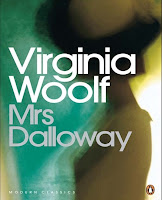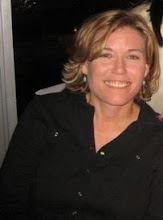
5. Mrs. Dalloway, by Virginia Woolf
If I were pressed to pinpoint the moment I understood the difference between literature and mere fiction, it would be after the revelation of Mrs. Dalloway. I first read the book, under duress, as an undergraduate. My assessment of the book at that time was that it wasn’t terrible, though a bit slow. These days, whenever a student of mine doesn’t see the enormity of what s/he has read, whether it be “Sonny’s Blues” or Moby Dick, I do my best to remember my experience with Virginia Woolf’s work and that all is not necessarily lost - for that student, for literature, or for the world. I put aside Mrs. Dalloway and moved on to whatever was next, not realizing that a seed had been planted.
As my college years passed and I became increasingly aware of Woolf’s reputation, and was repeatedly assigned her work to read, I couldn’t help but begin to think that maybe there was something to it that I was missing. To me, it seemed rather simplistic (except Orlando, which I still don’t sufficiently appreciate, I suppose), and I determined that one day I would revisit Clarissa Dalloway. After reading A Room of One’s Own, I began to understand Woolf’s role in feminist thought & her place in women’s history. I understood her importance in these ways, but still failed to understand her literary importance.
Underneath it all, it must have been nagging me, for when I went to graduate school, I would do more than merely revisit Clarissa Dalloway. Although I was in a writing program, it contained a serious & substantial literature component that would challenge me nearly as much as the writing elements. At the time, the English Department chair was a Woolf scholar of some reknown, and one semester she agreed to do a Woolf tutorial with me. The reading list was long; it included fiction, nonfiction, plays, and short stories.
Recognizing, appreciating, and understanding the bold experiments Woolf had brought to the writing of fiction – which are too numerous to get into here - was the first step towards a more profound appreciation. By the time we read To the Lighthouse and Mrs. Dalloway – arguably the works that cinched her reputation – I had begun to get a sense of deep complexity beneath the simplistic surfaces of her work. But it wouldn’t be until I chose Mrs. Dalloway on which to write the required 20-page criticism, and immersed myself in that novel, that the real depth and magic of it would be revealed to me.
During the course of wrestling with the beast, I had a sudden revelation: that this seemingly simple, chronological, manageable, naturalistic novel was actually a rumination on the immense, unfathomable, felt sometimes but rarely seen or understood worlds of human consciousness, sub-consciousness, and the invisible strata & mechanisms of the universe. It is about something so big and profound that I do not have the words with which to say it, so for my paper I focused on the mythological “language” of the book & tried to encapsulate all that I suddenly had to say about it in what was now a “mere” 20 pages. It was not the “A” that I received for the paper that was so gratifying, but my professor’s joyful declaration that I “got” Virginia Woolf. In retrospect, it felt like receiving the keys to the kingdom, to the inner world – the soul, if you will – of literature. I also realize in retrospect that it was the platform on which I would build a brand new, radical vision of myself, the world, and existence itself.
If I were pressed to pinpoint the moment I understood the difference between literature and mere fiction, it would be after the revelation of Mrs. Dalloway. I first read the book, under duress, as an undergraduate. My assessment of the book at that time was that it wasn’t terrible, though a bit slow. These days, whenever a student of mine doesn’t see the enormity of what s/he has read, whether it be “Sonny’s Blues” or Moby Dick, I do my best to remember my experience with Virginia Woolf’s work and that all is not necessarily lost - for that student, for literature, or for the world. I put aside Mrs. Dalloway and moved on to whatever was next, not realizing that a seed had been planted.
As my college years passed and I became increasingly aware of Woolf’s reputation, and was repeatedly assigned her work to read, I couldn’t help but begin to think that maybe there was something to it that I was missing. To me, it seemed rather simplistic (except Orlando, which I still don’t sufficiently appreciate, I suppose), and I determined that one day I would revisit Clarissa Dalloway. After reading A Room of One’s Own, I began to understand Woolf’s role in feminist thought & her place in women’s history. I understood her importance in these ways, but still failed to understand her literary importance.
Underneath it all, it must have been nagging me, for when I went to graduate school, I would do more than merely revisit Clarissa Dalloway. Although I was in a writing program, it contained a serious & substantial literature component that would challenge me nearly as much as the writing elements. At the time, the English Department chair was a Woolf scholar of some reknown, and one semester she agreed to do a Woolf tutorial with me. The reading list was long; it included fiction, nonfiction, plays, and short stories.
Recognizing, appreciating, and understanding the bold experiments Woolf had brought to the writing of fiction – which are too numerous to get into here - was the first step towards a more profound appreciation. By the time we read To the Lighthouse and Mrs. Dalloway – arguably the works that cinched her reputation – I had begun to get a sense of deep complexity beneath the simplistic surfaces of her work. But it wouldn’t be until I chose Mrs. Dalloway on which to write the required 20-page criticism, and immersed myself in that novel, that the real depth and magic of it would be revealed to me.
During the course of wrestling with the beast, I had a sudden revelation: that this seemingly simple, chronological, manageable, naturalistic novel was actually a rumination on the immense, unfathomable, felt sometimes but rarely seen or understood worlds of human consciousness, sub-consciousness, and the invisible strata & mechanisms of the universe. It is about something so big and profound that I do not have the words with which to say it, so for my paper I focused on the mythological “language” of the book & tried to encapsulate all that I suddenly had to say about it in what was now a “mere” 20 pages. It was not the “A” that I received for the paper that was so gratifying, but my professor’s joyful declaration that I “got” Virginia Woolf. In retrospect, it felt like receiving the keys to the kingdom, to the inner world – the soul, if you will – of literature. I also realize in retrospect that it was the platform on which I would build a brand new, radical vision of myself, the world, and existence itself.
Postscript: I just realized that I went out of order by doing Mrs. Dalloway in the #5 slot. In my notes, I have it as #6 and Ovid's Metamorphoses as #5 - and indeed, that book had its effect before this one. But c'est la vie, I shall do Metamorphoses in the #6 slot....
